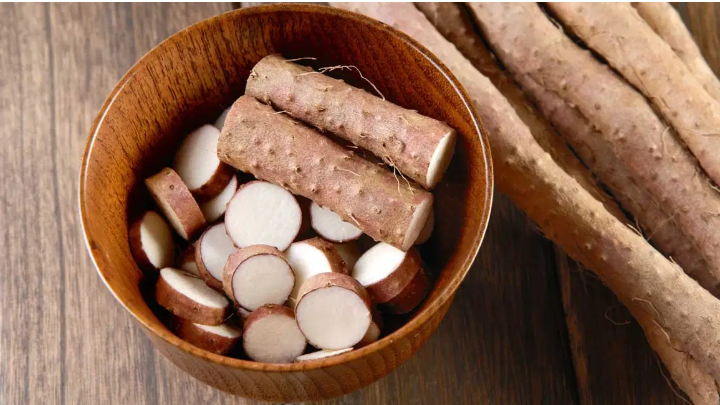- Get link
- X
- Other Apps
JUST IN
- Get link
- X
- Other Apps
Yams are rich in vitamins, minerals, and fiber.
One cup (136 grams) of baked yams provides (
- Calories: 158
- Carbs: 37 grams
- Protein: 2 grams
- Fat: 0 grams
- Fiber: 5 grams
- Vitamin C: 18% of the Daily Value (DV)
- Vitamin B5: 9% of the DV
- Manganese: 22% of the DV
- Magnesium: 6% of the DV
- Potassium: 19% of the DV
- Thiamine: 11% of the DV
- Copper: 23% of the DV
- Folate: 6% of the DV
Yams are not only an excellent source of fiber but also high in potassium and manganese, which are important for supporting bone health, growth, metabolism, and heart function (
These tubers also provide decent amounts of other micronutrients, such as copper and vitamin C.
Copper is vital for red blood cell production and iron absorption, while vitamin C is a strong antioxidant that can boost your immune system (
Eating yams may boost your brain.
In one 12-week study, people who took a yam extract supplement scored higher on a brain function test than those in the placebo group (
Yams contain a unique compound called diosgenin, which has been found to promote neuron growth and enhance brain function (
Diosgenin has also improved memory and learning abilities in mice in various maze tests (
However, more research in this area is needed to fully understand how yams may benefit brain health.
The antioxidants in yams may help reduce inflammation.
Chronic inflammation is linked to an increased risk of various conditions, such as heart disease, diabetes, and obesity (
Eating anti-inflammatory foods, such as yams, can help manage chronic inflammation (
Several rat studies have observed that yam powder reduced inflammation related to several illnesses, including colon cancer, irritable bowel syndrome (IBS), and stomach ulcers (
Still, more studies are needed to determine whether eating yams has the same anti-inflammatory effects in humans.


Comments
Post a Comment
Let know your comments